Is This An Emergency?
Jan 09, 2023Fall is an amazing season. All of nature is slowing down, shedding the old, and preparing for the new. And as beautiful as it is, it may not always look glamorous. In fact you may be thinking there is something wrong in your garden or with your chickens. I hope these most common “emergencies” will help you relax a little, so you can enjoy this season and all it offers. It is the most beautiful season of all.
My Chickens Are Losing Their Feathers
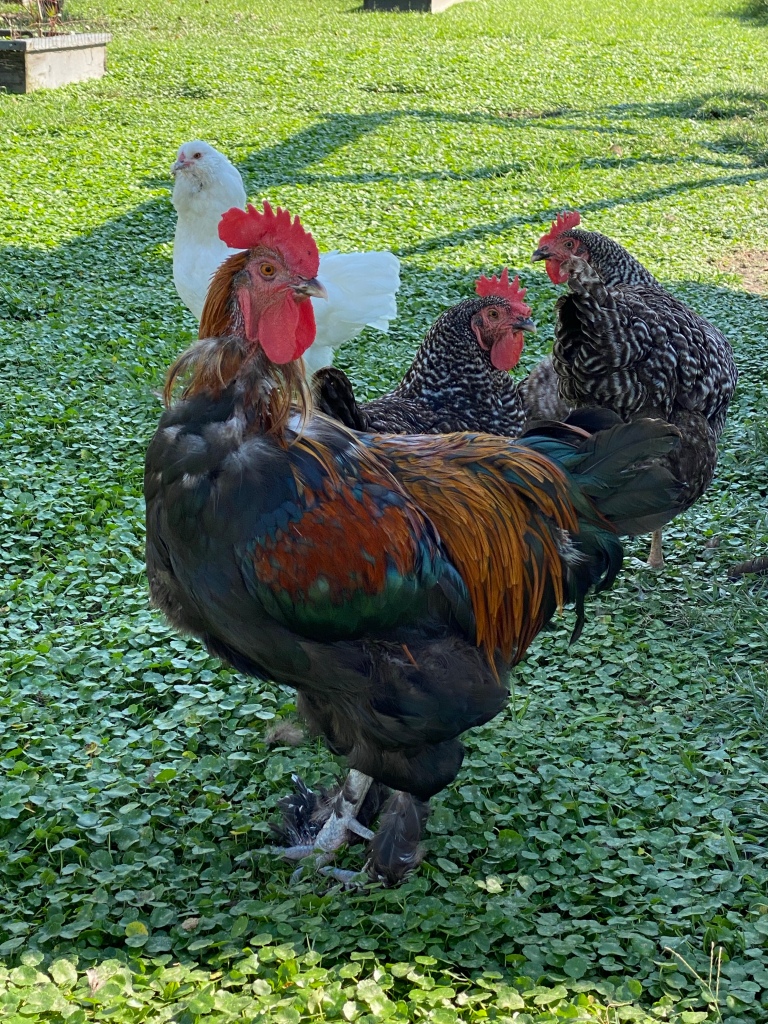
Whaaaat?? You mean like this?? Poor Johnny Cash looks like he has been in a bar fight, and the entire coop looks like a murder scene. Feathers everywhere! It will definitely scare you the first time you see it.
Actually though, it is completely normal. The autumn season is molting season for chickens, and believe me it gets worse before it gets better. But it is completely normal, and a good thing.
As soon as the daylight hours start decreasing, the birds begin preparing for winter, and that requires a new coat…of feathers that is! They will lose most of their feathers and take a break from egg laying to put all of their energy into feather growth. And when it is all over, they will look fabulous!!
Some Things You Can Do
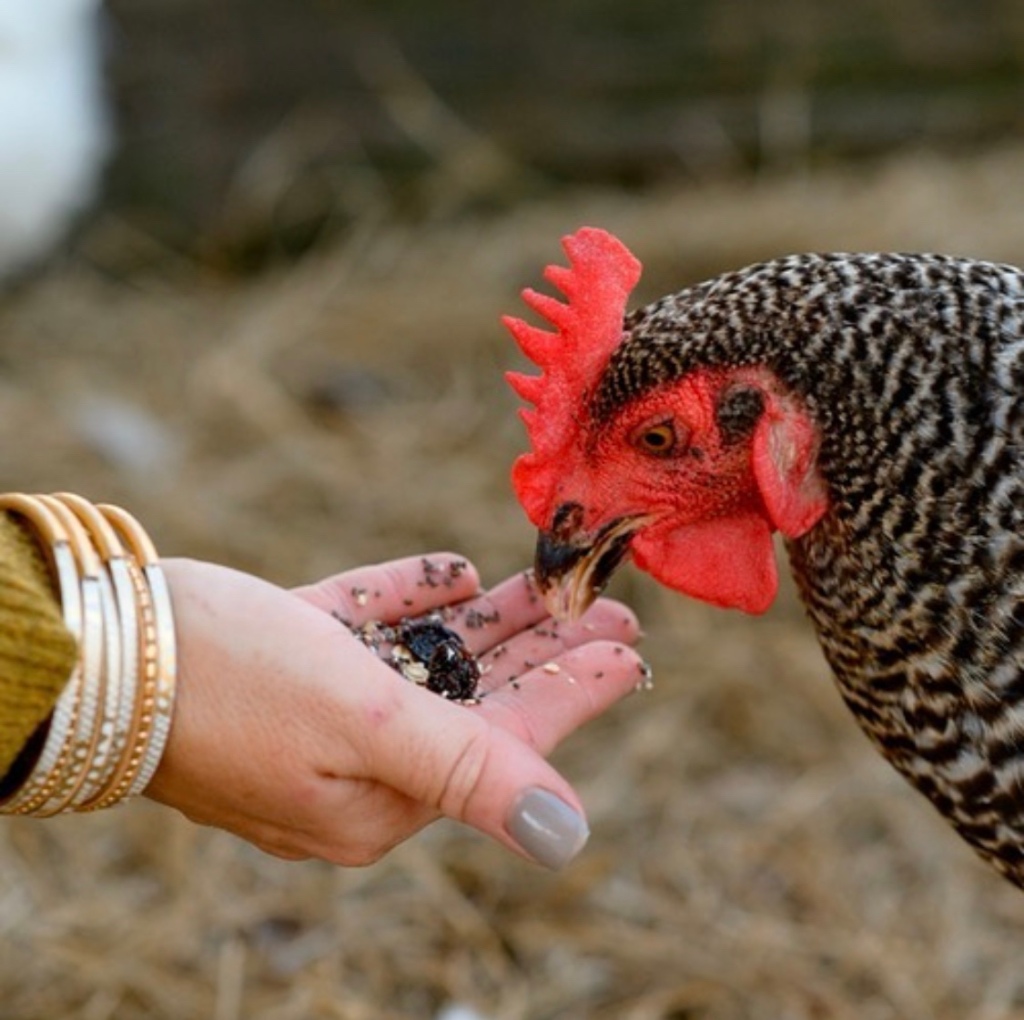
Extra treats like meal worms, raisins, and other sources of good proteins will really boost their feather re-growth and get them back to normal as soon as possible. You can also change their feed to one with a higher protein content as well to help their bodies recover more quickly.
A typical molt lasts about a month or so, so in no time, your flock will be back to normal.
My Chickens Stopped Laying Eggs
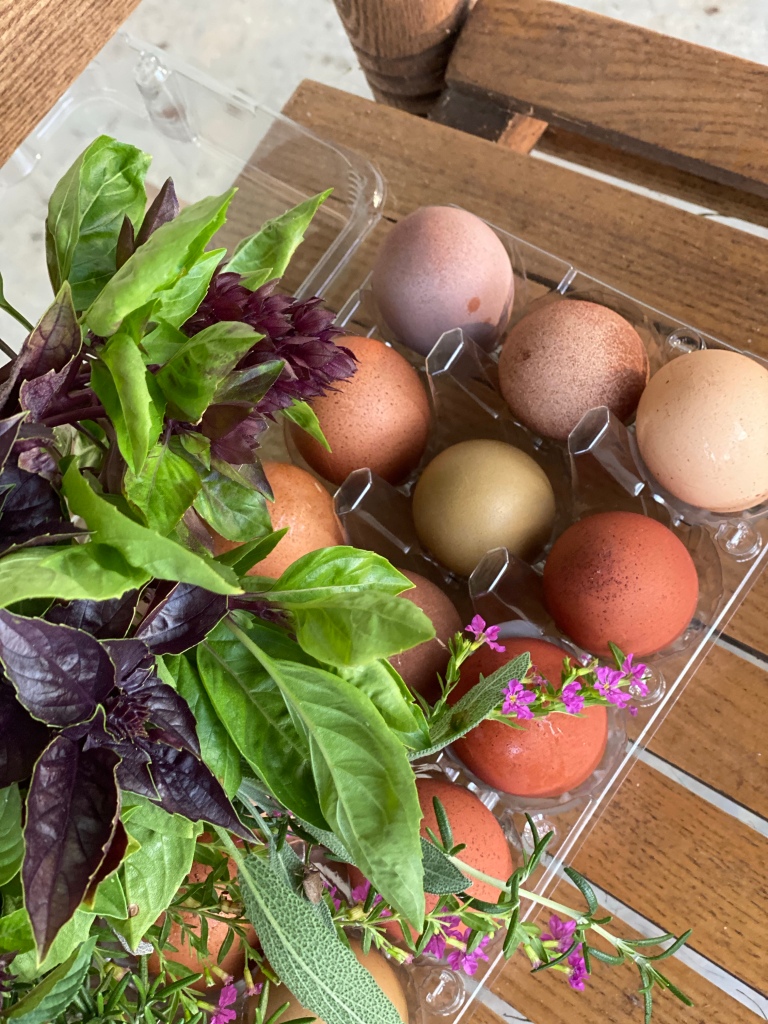
Remember, this time of year is a rest period in nature. It is a time where all the earth slows down. That includes egg laying.
Once daylight hours begin to decrease, your flock’s egg production could slow down tremendously. This is their bodies’ way of resting. And, in my opinion, we should let them. Honoring their natural cycle instead of putting lights in the coop to trick them into thinking there is more daylight, is a much better option. Pushing their bodies to the limit isn’t good for your flock, and it really doesn’t accomplish much. Your egg production is still going to slow down, and chickens only lay so many eggs in their lifetime. So, it is less eggs now, or less eggs later. Also, eating seasonally is soooo good for your body. Our bodies feel the need to slow down too. Let’s listen to them and take this season to rest. And we will let our chickens rest too.
Some Things You Can Do

Love your babies well while they look raggedy and aren’t laying. Let them freeload for a few months, and you will be blown away at how they repay you in the spring.
Bring them treats like meal worms and warm oatmeal on a cold winter morning and enjoy their beauty. Before you know it, they will be back to normal.
One other way I love to keep egg production steady, even through the winter, for the clients I curate flocks for, is by adding new hens in the summer. By adding new layers at the end of the season, many times they will start laying right before the daylight hours decrease, and they will keep right on without slowing down. Also, it is helpful to remember that first year birds don’t molt, so you can keep collecting gorgeous eggs during this season of slow.
My Veggies Are Dying
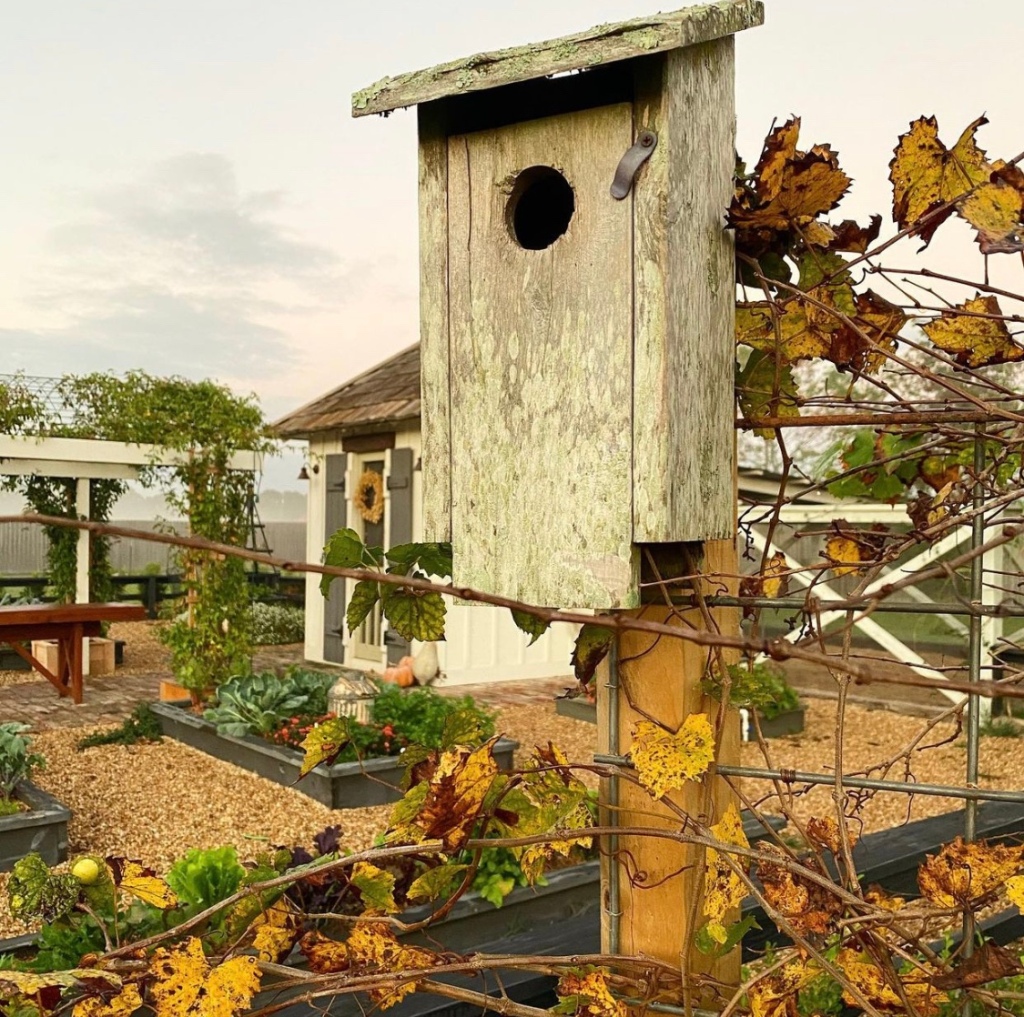
It may not startle you to see the leaves change on every tree in sight, but let those summer veggies start dropping leaves and it is full panic. I know! I feel the same way!
Summer veggies love the heat, the sun, and the long days of summer, so once the days begin to shorten and get cooler, they begin to fade. It is so bittersweet, especially when you have green tomatoes, basil spilling out of every bed, and cucumbers on the vine. But is the natural cycle of nature and one that is really beautiful if you see it correctly.
Some Things You Can Do
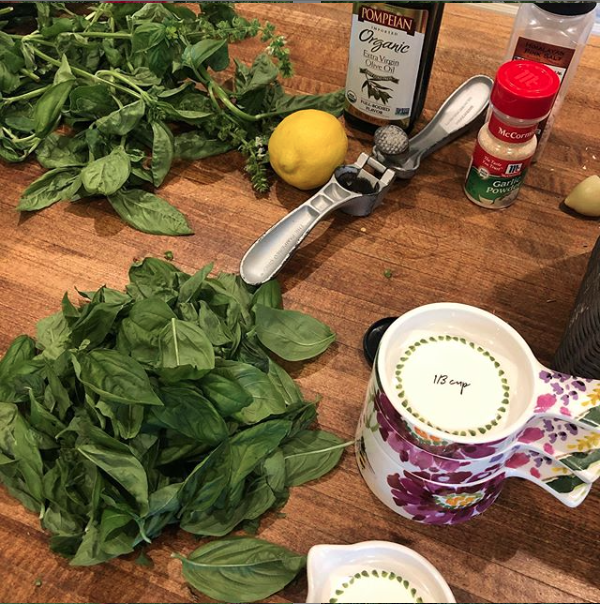
Thank your garden and cultivate a gratitude for all that grew there by removing spent veggies immediately and begin the food saving process if you’d like. Make pesto like crazy and freeze it for later. Fry those green tomatoes or pickle them. Chop all the peppers and put them in the freezer for the winter. Make some salt or oil infusions with all the lemon balm and basil and rosemary you may have. It is a beautiful process, and it reminds us how the seasons change. The cycle of nature is so healing.
Here is a link to some of my favorite ways to use all the mint you might have in your garden right now.
My Cool Season Veggies Have Damaged & Discolored Leaves
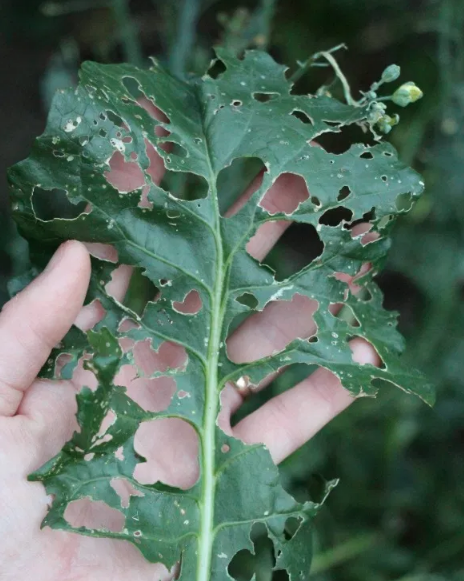
Our newly planted broccoli, cauliflower, and cabbage are like new born babies to the wild child gardener. We love them and want to make sure that they are perfect in every way. The problem is that in nature nothing is perfect. And we typically figure that out pretty quickly. Before we can even water our newly planted seedlings for the first time, the leaves start changing color, and the pests seem to find them. Here is a link to a post all about cool season pests and how to get a hold on them early. But is this an emergency? Will our babies ever recover? It is definitely not an emergency…yet. It could turn into one left unchecked, but at first sight of munch marks, the plants are fine. They are wired to grow in their DNA, so they can handle a little munching here and there. The emergency comes when the munching is not dealt with promptly and the plant loses all its leaves to slugs or worms, or worse a rabbit or deer.
Once the plant no longer has leaves it can’t perform photosynthesis and therefore can no longer live. This is an emergency. And sadly, one you can’t bounce back from. The only option at this point will be to replace the plant and hope you have the days needed to get a harvest. This is why it is so important to get ahead of pests in the cool season. We are up against the clock, and you know timing is everything in the garden. By working now to prevent pests of all kinds, you can save your plants and help them get to harvest.
Some Things You Can Do
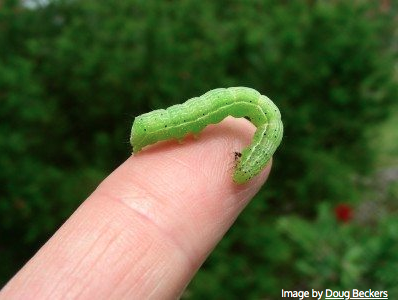
Get busy right now! The most important thing you can do is not delay. Cool season pests are easily treatable, and most are preventable, but if you wait too long, it will be too late. Instead get busy now! This post will help…so will making sure you are in the garden every day. Make time to visit your veggies. It will change the course of your garden. Daily garden observation is the key to staying on top of damage this season. So get out there. You know who else it is good for?? YOU!!
My Veggies Aren’t Growing
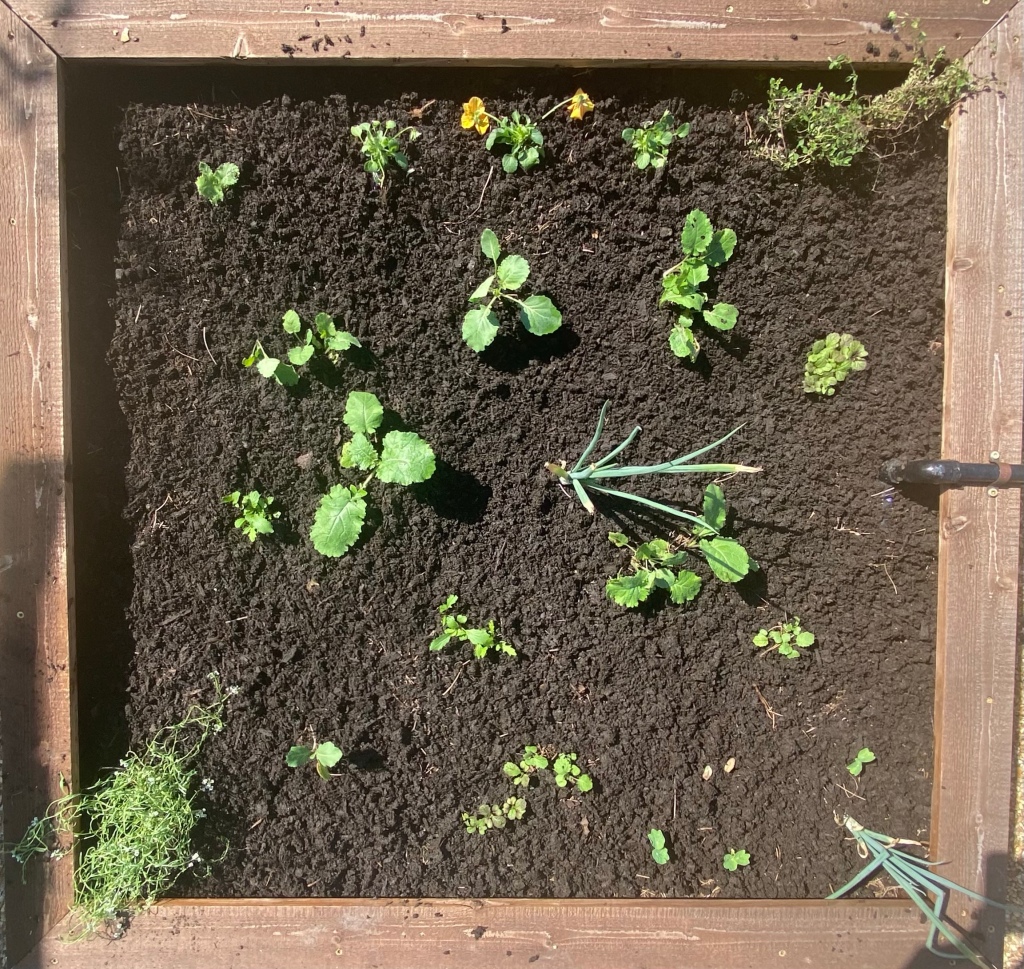
I hear this more than any other concern both from the garden club members and the students it the Wild Child Kitchen Garden Academy. It is by far the biggest question in my inbox from clients of gardens I design as well. And I sometimes wonder if I’m doing everything right too. We want them to show off. We have done all the things right, and we just want to see them succeed! If you think your veggies aren’t growing fast enough, it probably isn’t the emergency that it seems to be. But it could be. To be sure, you need to ask yourself a few questions!
- Did I test my soil and amend accordingly, before I planted?
- Am I growing the correct veggies at the correct time? (Tomatoes planted now probably won’t grow.)
- Have I made sure to carefully space my veggies and plant them next to companions that they like and keep them away from those that may be toxic to them and cause them not to grow?
- Am I keeping my veggies happy with consistent moisture and mulch? You cannot underestimate the importance of these two things!
If the answer to these questions is “yes” then you can rest assured that your veggies are more than likely going to be just fine! You probably just haven’t given them enough time to get growing.
Some Things You Can Do
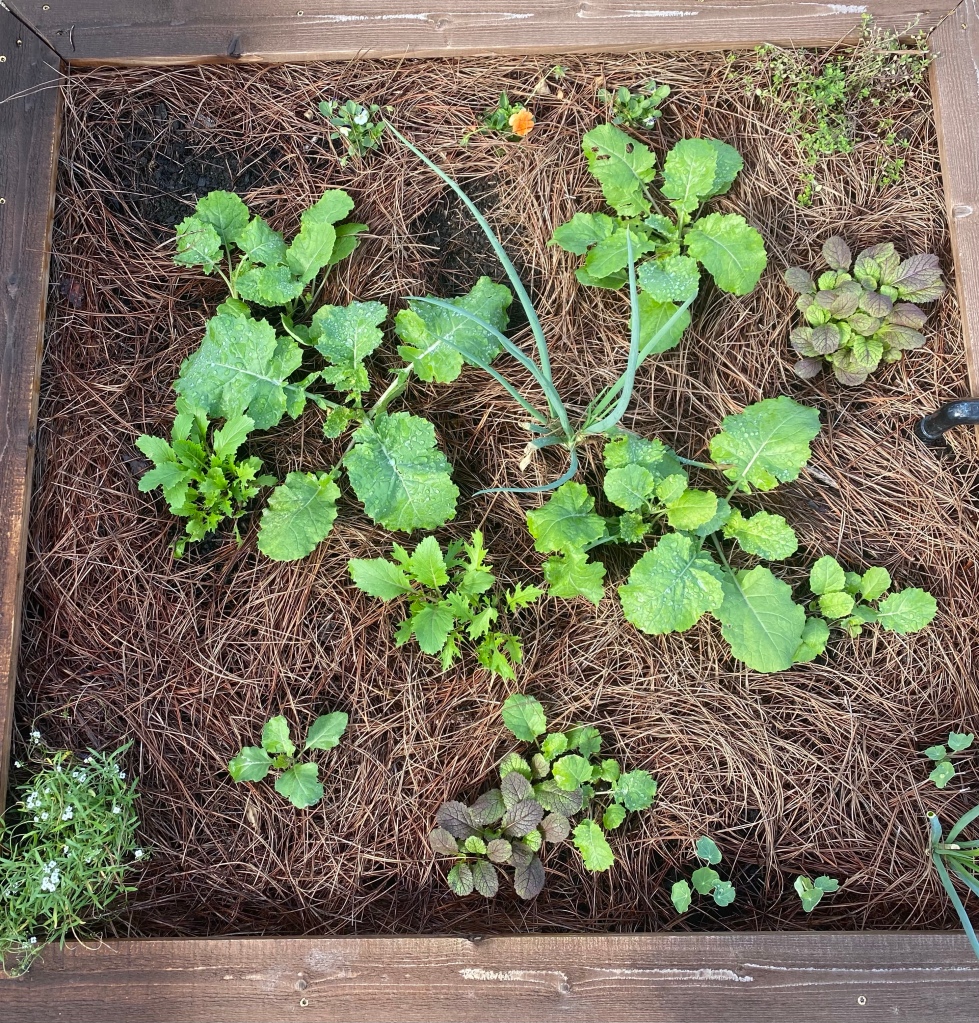
First, remember that cool season veggies love cool season temperatures. We are just beginning to see them, so that could definitely be causing some things to have a slow start.
Second, if you didn’t test your soil or amend it to replace nutrients that were used last season, you are selling yourself and your garden short! Healthy soil = Happy plants. You cant overestimate this!! Get busy building your soil. And in the mean time, use a high quality organic feed and beneficial mycorrhizae to hold you over. These two things will greatly improve the quality of your soil in the short term while you work to improve the quality of the soil for the long term. When purchasing mycorrhizae for an existing garden, always choose the soluble product. And use the code “WILDCHILD” to receive 15% off your order!
Third, keep them watered, but not too much. Huh? Yes! Make sure your veggies have consistent moisture without overwatering. We do this by giving them a moisture test before watering. It’s simple. Just stick your finger down into the soil, and if it comes out dry, it’s time to water. If the soil sticks to your finger a little and has some moisture to it, no watering for the day. Overwatering is one of the worst things you can do to a plant. And it is so easy to do. Give the moisture test to make sure they need the drink first.
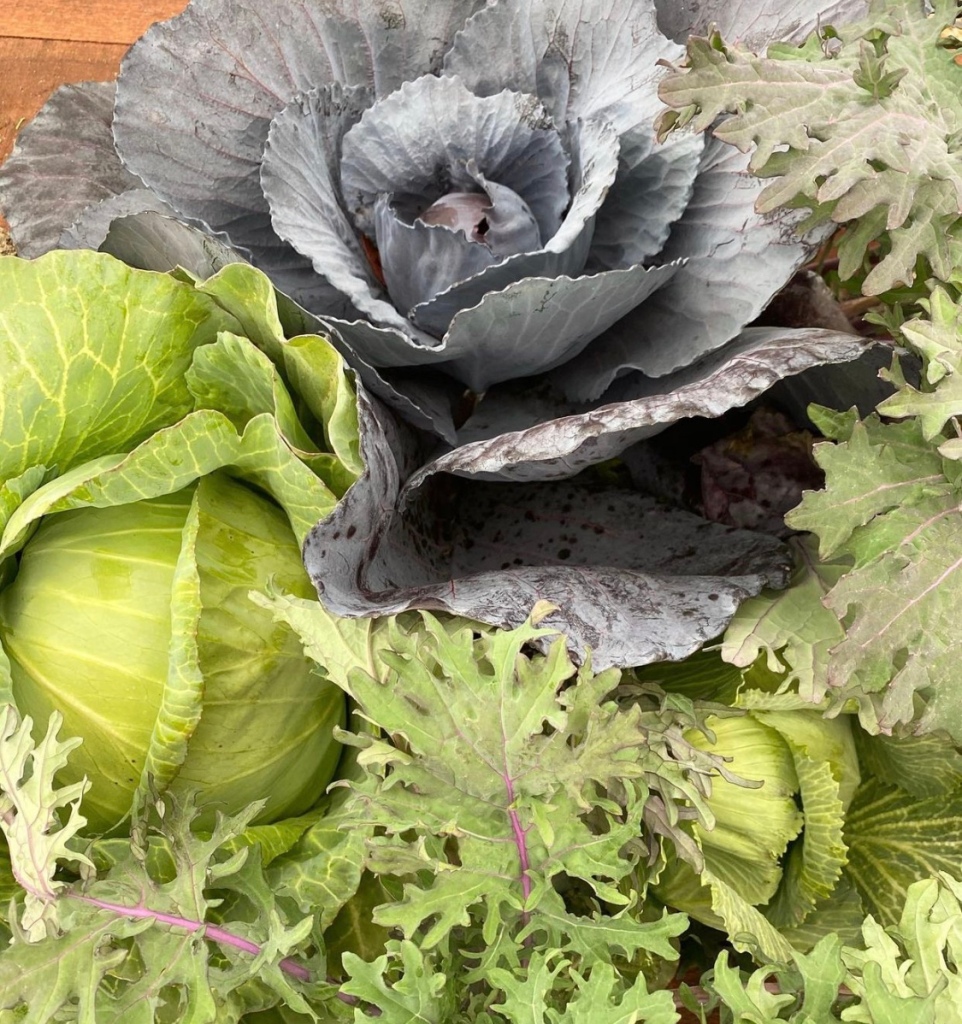
I hope that these not so scary “emergencies” help give you confidence as we enter into my favorite season. The weather is nice, the pests are few, and it is the perfect time to start your backyard vegetable garden and flock of chickens. I can help!! It all starts with a consult!! Book yours today and let me show you how wonderful it is to release your inner wild child. I promise it will heal your soul!



